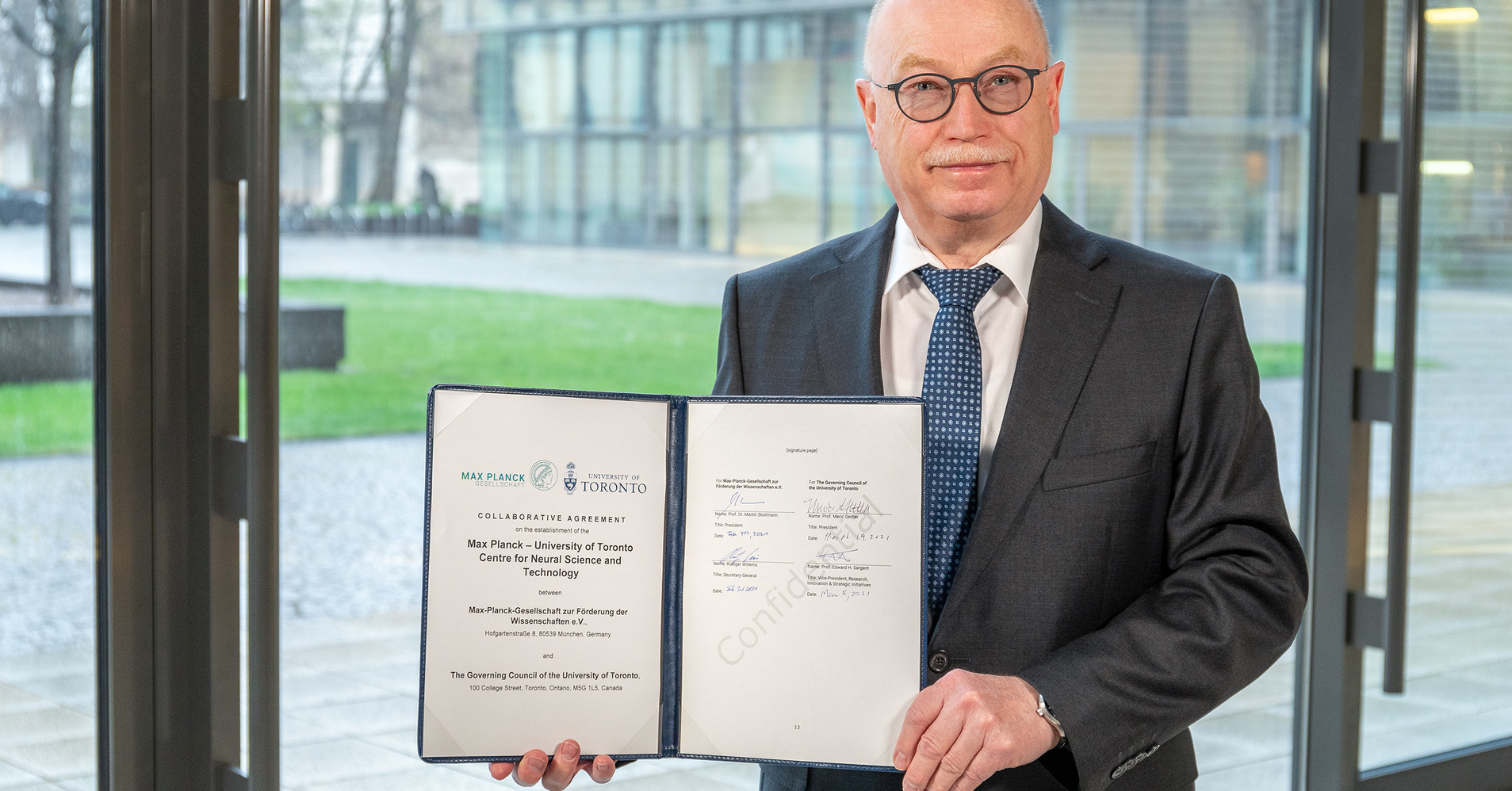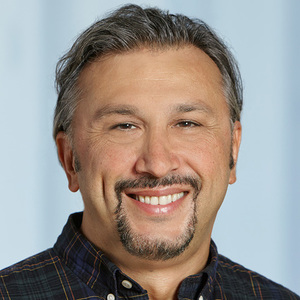MPI-IS participates in the Max Planck-University of Toronto Centre for Neural Science and Technology
Metin Sitti to cooperate with neurosurgeons to use his miniature robots as new tools in neurological diseases

Better therapies for diseases such as dementia or Parkinson's, as well as more powerful computers and new artificial intelligence technologies – these are the goals scientists will pursue at the Max Planck-University of Toronto-Centre for Neural Science and Technolgy. The center was officially inaugurated on April 14, 2021, in a virtual event with many prominent guests. Metin Sitti, Director of the Physical Intelligence Department at the Max Planck Institute for Intelligent Systems, also attended.
Stuttgart, Toronto, Munich – The human brain is the best computer there is in the world. Even though computers that work with processors and data memories solve many specialized tasks much faster, they are still nowhere near the versatility of a human brain. Hence the brain can serve as a blueprint for more powerful computers. But to mimic it, neuroscience must first understand brains in detail. That's why researchers at the Max Planck – University Toronto Centre for Neural Science and Technology are developing methods to achieve this. They also want to use the better understanding of nerves and neural circuits to find new approaches in the treatment of neurodegenerative diseases such as Alzheimer's and Parkinson's.
“My impression is that after decades of basic research, we are crossing a threshold and can now use many methods to make a big leap in understanding fundamental cognitive functions and treating diseases,” Martin Stratmann, the President of the Max Planck Society said at the opening. “But the amazingly grown toolbox also helps us to advance the development of an artificial intelligence based on the biological model.” The big leap, however, is only possible if the tools are combined wisely, he said, and if there is progress in the technology and the interfaces to the brain.
Twelve Max Planck Institutes are participating
That's exactly what the new center aims to do: “The Max Planck Society and the University of Toronto bring the ideal conditions to work closely together,” says Meric Gertler, president of the University of Toronto. “This is especially evident when you look at our combined capabilities in research on brain function and disease in.”
On the part of the Max Planck Society, 12 institutes are participating in the collaboration – the Max Planck Institute for Intelligent Systems is one of them. The director of the Physical Intelligence Department, roboticist Metin Sitti, gave a talk at the inauguration event on the potential medical applications of miniature wireless robots, which are only a few micro- or millimeters in size, and that could one day be steered and controlled inside brain. “I talked about our promising research results and how in the future we could use robots to wirelessly stimulate nerves, read neural signals, and treat neurological diseases and brain cancer.”
In the future, Sitti wants doctoral students in his department to collaborate with University of Toronto scientists, particularly neurosurgeons, to use the wireless milli- and microrobots developed in his group for highly effective new medical applications in the brain. “The University of Toronto's medical and engineering schools are among the best in North America. It would be great to work with such top physicians and engineers through such a partnership,” Sitti said. “After my talk at the inaugural event, three neurosurgeons have already contacted me about a possible collaboration, which we will pursue in May. The best thing about this program is the opportunity to have joint students to facilitate productive and efficient collaborations at both sites.”
The Max Planck – University of Toronto Centre for Neural Science and Technology will strengthen interdisciplinary collaboration and also provide cross-disciplinary knowledge and skills to junior scientists. Thus, in five years, about 25 students will be able to earn their Ph.D.s at the new center, gaining experience both at Max Planck Institutes and in various groups at the University of Toronto.
The University of Toronto is particularly good at aligning research directly with societal needs, and is correspondingly strong in engineering, computer science, or clinically oriented medical research. The Center will be an important component of the neurotechnology ecosystem that is growing at the University and at participating hospitals in the Toronto Academic Health Science Network. It also exemplifies the interdisciplinary work that is urgently needed to advance the research field of Neuroscience.
